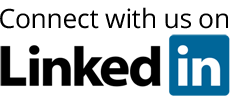
Increasingly, firms begin the interview process with a phone interview to discuss their opportunity, screen candidates and gauge their communication skills and interest level. Phone interviews are also used to minimize expenses interviewing out-of-town candidates. The reasons for not progressing to a subsequent face-to-face interview include:
- Unfocused and verbose answers
- Dominating the conversation
- Unenthusiastic and disinterested attitude
- Lack of preparation and knowledge about the employer
Most phone interviews range from 20 to 45 minutes so time is limited. You can’t see your interviewer and therefore you need to convey emotion in your tone and pitch. Take the phone interview as seriously as an in-person interview.
Proper Phone Etiquette
- Answer the phone with your full name, “Hello, this is Susan Smith.”
- Be in a quiet, private space without distractions or external noise. If you need to ask for a moment to find one, do so.
- Listen carefully to the interviewer and do not start speaking until the question is finished.
- Repeat the question if you need time to reflect or pause and allow for a couple of moments of silence, but don’t leave too much dead air.
- Remember to record a professional outgoing voicemail.
Preparing for the Phone Interview
- Confirm details of who is initiating the call.
- Have the firm’s website or the interviewer’s LinkedIn profile open on your laptop or tablet.
- Know your background in depth and be prepared to discuss it extemporaneously – not using the same verbiage as listed on your resume.
- Prepare to discuss your entire job history, including a brief answer for why you left each role, the main skills you learned from each job and how they apply to this one and specifics of transactions you show on your resume.
- Rehearse basic interview questions and answers on the phone with someone if possible, and for bonus preparation record your answers and play them back. Listening to a recording will help you pinpoint answers that can be improved.
- After reviewing the job description again, think about the key functions of this opportunity: Where have you had experience and SUCCESS in similar responsibilities in your past? Be prepared to offer specific examples of what you’ve done that will make you successful in this role and will show how you can be a contributor to the firm from Day 1.
- Research the firm, the interviewer and the members of the team in depth. Check their bio on the company website or LinkedIn. Note if you have similar network connections.
- Know something about deals they have worked on, firms they worked at before, and their personal activities. Don’t be constrained by the firm’s website: Use all the resources available and be prepared to demonstrate how you will fit into the firm’s culture and deal structure.

During the Phone Interview
- Have a copy of your resume in front of you so you can refer to it during the interview and a copy of the job description.
- Have a pen and paper to take notes.
- Stand up or sit up straight—you’ll be less nervous and will project better.
- Enthusiasm and passion are all you have to sell so do whatever you need to increase your energy and warm up your voice. Actors often do some light calisthenics, drink hot lemon tea, and engage in voice exercises before going on stage.
- Smile. Smiling projects a positive image and changes the tone of your voice.
- Be an active listener: Follow the flow of the conversation: Is there a balance of who is talking and who is listening?
- Avoid verbal ticks (“um”, “okay”, “you know”).
- Do focus and enunciate, taking care to not speak too fast or too slow.
- Be sure to avoid interrupting the interviewer: Hint—count to 3 when they pause.
- Have meaningful questions prepared. What do you really need to know to determine if this opportunity would be right for you?
- Do not make up an answer to a question if you do not know.
- Find out if there are any questions about your credentials. Flush out objections with, “Is there anything about our conversation today that would keep you from setting up a second interview?”
- Have a closing statement; for example: “Thank you for taking time to discuss the opportunity, your background and the firm. I am very interested in the opportunity and would be interested in continuing in the process. I look forward to hearing from you.”
After the Phone Interview
- Send a follow-up email to thank the interviewer for their time, expressing your interest in the opportunity and one or two points you found specifically intriguing about the opportunity from the call. Keep it sort and sweet and send it the day of the phone interview or by the next day. Thank-you notes are essential—without one you more than likely not be invited for a second interview.
- Do a post-interview autopsy. Where did you do well and what can you improve?
Good luck with your phone interview!

